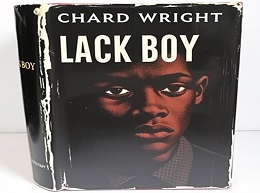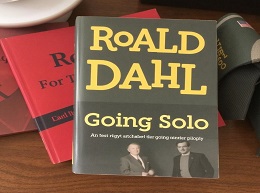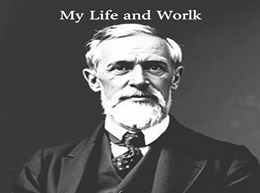Running with Scissors

In-Depth Review of Augusten Burroughs' Memoir "Running with Scissors"
"Running with Scissors," a memoir by Augusten Burroughs, published in 2002, offers a startling and often darkly comedic look at an unconventional and chaotic childhood. The memoir recounts Burroughs’ experiences from age 12 to 17, focusing on his life after his mother, a mentally unstable poet, sends him to live with her eccentric psychiatrist, Dr. Finch. The book is a rollercoaster of bizarre events, dysfunctional relationships, and surreal experiences, all told with a blend of humor and poignancy. This review delves into the various elements that make "Running with Scissors" a compelling and unforgettable read.
A Tumultuous Beginning
The memoir opens with a depiction of Burroughs’ early life with his mother, Deirdre, who is increasingly consumed by her mental illness and pursuit of a writing career. Burroughs' father, an alcoholic and largely absent figure, adds to the instability. The decision to send Augusten to live with Dr. Finch, a move intended to provide stability, marks the beginning of a series of bizarre and often disturbing experiences.
Burroughs’ description of his mother’s decision is both shocking and surreal. He writes, “I am not an orphan, I am a writer's son,” highlighting the sense of abandonment and bewilderment he felt. This pivotal moment sets the stage for the unconventional and often unsettling events that follow.
Life with the Finch Family
Dr. Finch’s household is a world unto itself, filled with chaos and eccentricity. The Finch family, consisting of the doctor’s submissive wife Agnes and their children, lives in a dilapidated Victorian house where boundaries are nonexistent. The doctor's unconventional therapeutic methods and the family's bizarre behaviors create an environment of neglect and dysfunction.
One of the most striking aspects of life with the Finches is the lack of parental supervision and the blurred lines between reality and delusion. For instance, the family's practice of interpreting bowel movements as messages from God is both absurd and disturbing. Burroughs’ recounting of these events is laced with dark humor, making the reader laugh and cringe simultaneously.
The Search for Identity
Throughout the memoir, Burroughs grapples with his identity and sense of self. His struggle is compounded by the erratic and often harmful influences around him. The lack of a stable parental figure and the chaotic environment lead him to seek validation and understanding in unconventional ways.
A pivotal moment in Burroughs’ search for identity is his relationship with Neil Bookman, Dr. Finch's adopted son. This relationship, which begins when Burroughs is 13 and Bookman is in his 30s, is highly controversial and complex. Burroughs presents it with raw honesty, highlighting the confusion, longing, and manipulation involved. He writes, “I felt a strange mix of excitement and fear,” encapsulating the turmoil of a young boy seeking affection and validation in inappropriate places.
Humor Amidst Chaos
One of the most remarkable aspects of "Running with Scissors" is Burroughs' ability to infuse humor into his narrative, even when describing the most disturbing and chaotic events. His wit and comedic timing provide a counterbalance to the darker elements of the story, making the memoir both engaging and accessible.
For example, Burroughs describes an incident where he and Natalie, one of the Finch daughters, attempt to create their own beauty salon using kitchen appliances and household items. The absurdity of the situation and Burroughs' humorous portrayal of their failed endeavor provide a moment of levity amidst the overall dysfunction. He writes, “We were going to make people beautiful, or at least not as ugly as they were before.”
The Impact of Mental Illness
Mental illness is a recurring theme in "Running with Scissors," shaping the lives of many characters, particularly Burroughs’ mother and Dr. Finch. Deirdre’s struggle with her mental health and her reliance on Dr. Finch's questionable treatment methods highlight the inadequacies and dangers of mental health care during that time.
Burroughs’ portrayal of his mother’s descent into madness is both heartbreaking and enlightening. He captures the erratic behavior, the delusional thinking, and the profound impact on those around her. For instance, Deirdre’s obsession with her writing and her detachment from reality are depicted with a mix of empathy and frustration. Burroughs writes, “She was a prisoner of her mind, lost in a world of her own creation.”
A Journey to Self-Acceptance
Despite the chaos and dysfunction, "Running with Scissors" is ultimately a story of resilience and self-acceptance. Burroughs’ journey from a confused and neglected boy to a young man who understands and accepts himself is both inspiring and poignant.
The memoir concludes with Burroughs’ decision to leave the Finch household and forge his own path. This act of defiance and self-determination marks a turning point in his life. He reflects on his experiences with a sense of clarity and acceptance, acknowledging the pain and confusion but also recognizing his strength and resilience. Burroughs writes, “I had survived. And I was ready to live.”
Writing Style and Structure
Burroughs’ writing style is characterized by its clarity, wit, and emotional honesty. His ability to describe bizarre and often traumatic events with humor and insight makes the memoir a compelling read. The structure of the book, which is divided into short, episodic chapters, allows readers to easily follow the progression of Burroughs’ life and experiences.
The episodic nature of the memoir mirrors the fragmented and chaotic reality of Burroughs’ childhood. Each chapter presents a snapshot of his life, capturing the absurdity, pain, and moments of joy that defined his youth. This structure, combined with Burroughs’ engaging prose, creates a narrative that is both dynamic and deeply moving.
"Running with Scissors" by Augusten Burroughs is a memoir that offers a raw and unfiltered look at a childhood marked by chaos, dysfunction, and resilience. Through his candid storytelling and dark humor, Burroughs captures the complexity of his experiences and the strength it took to survive and thrive despite the odds.
The memoir's exploration of themes such as identity, mental illness, and self-acceptance resonates deeply, offering readers both insight and empathy. Burroughs’ ability to find humor amidst the chaos and his journey towards self-discovery and resilience make "Running with Scissors" a powerful and unforgettable read.
For those seeking a memoir that is both harrowing and hilarious, "Running with Scissors" is an essential addition to their reading list. It is a testament to the human spirit's ability to endure, adapt, and ultimately, triumph.













